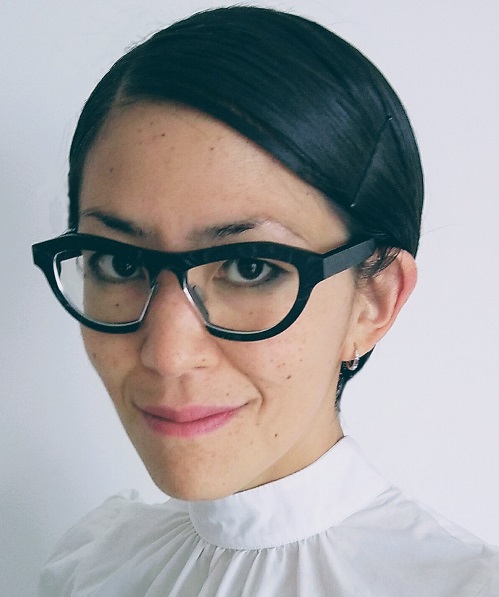Meet Dr Esperanza Miyake...
I joined the University of Strathclyde last April as a Chancellor’s Fellow in Journalism, Media and Communication. With a background in Gender Studies and longstanding engagement with critical feminist theory, my research involves the problematisation of dominant constructions and representations of gender and race in media and popular culture. I am also interested in how everyday practices of technology (from fitbits, gaming consoles to digital detox apps) create digital inequalities that are based on intersections of gender, race and class. Outside of research, I have been in the past co-Chair of University-wide race, equality and diversity committees, and currently sit on my School’s Gender, Equality, Diversity, Inclusivity (GEDI) committee.
This year’s International Women’s Day theme is ‘Choose To Challenge’. What does this mean to you?
For me, “Choose to Challenge” represents two interrelated struggles, because for some of us, before we are even in a position to challenge any social injustice and inequality, we need to fight for that right first. There will always be some people who will try to take away your rights – including your right to “choose to challenge” – based on socio-culturally ingrained biases that subjugate marginalised ‘others’ along intersections of gender, race, class, sexuality, ability and so on. So first of all, it’s crucial to know and be confident that yes! you do have the right to “choose to challenge”.
Secondly, in order to exercise that right, we must challenge the very society and culture that places us in such a situation. Because if you do not challenge, you are never heard. And if you are not heard, you remain silenced and invisible. And if you remain silent and invisible, you are allowing only the dominant stories to be told and re-told, making it even more difficult to be heard and making it feel like there are not many choices.
In my life and role, I have tried my best to always challenge bigotry and bias through my voice, a powerful weapon to break that suffocating silence and shadow of invisibility. I feel incredibly lucky and grateful for the language that Gender Studies has equipped me with, so that I can use my voice in the most effective way as possible: from using my academic voice to challenge stereotypes and oppressive ideologies through research and writing that engages with critical feminist and race theories; my presence and literal voice used in meetings, committees, fora concerning any aspect of academic life; all the way to instantly speaking out against bias, bigotry, and inequality within and outside work.
These are things I strive to do not just for myself, but as part of a collective fight to open up a wider space that moves beyond individual rights to a collective right. For me, it’s important that, for example: students feel they have a safe space to come out and hear their own voices; that certain areas of research open up to create more inclusive ways of thinking, approaching and conceptualising the world; that more academics from different backgrounds are represented as a matter of course rather than because it’s a discussion on diversity and inclusivity. These are some of the ways in which we can ensure individual and collective voices do not remain siloed and compartmentalised away into tick-boxes, remaining unheard and invisible at an institutional level.
That is why we must all individually choose to challenge, but we need to do this collectively, to be as loud as possible together. Equally, people need to actively listen, choose to listen to these voices. Only then can we even move towards a more inclusive society and culture.
What woman has most inspired you and why?
The first woman to summit Mount Everest and the first woman to summit the Seven Summits was both Junko Tabei (田部井 淳子),who despite all the misogyny and sexism against female mountaineers in Japan (and in general) achieved this amazing feat back in 1975. Yet, why is her name so little known? As a Japanese woman in a world where so few East Asian women make it into global public realm of existence – apart from a handful of Hollywood actresses fulfilling East Asian female stereotypes (‘dragon lady’; ‘geisha’; ‘martial arts chick’) – I would like to use this space just to admire her, celebrate her, and make her achievements visible.
Given the latest derogatory comments against women made by the now former chief of the Japanese Olympics organising committee, in 2021, you can imagine how much more invisible and subordinated women were, and how much more the hierarchal boundaries that defined women’s position in a patriarchal society and culture were rigidly demarcated in Japan back in the 1960s. Within that context, to combat not just the hostile environment against female mountaineers but the general socio-cultural mores against women (Tabei talks about how women “were asked just to serve tea. So it was unthinkable for them to be promoted in their workplaces")[1] Tabei formed a specific women-only mountaineering group (Joshi-Tohan). Later on, she went on to achieve all her mountaineering feats, as well as writing books and engaging in environmental activism.
For me, Tabei represents resilience, strength, perseverance and compassion. Climbing both figurative and literal mountains in her life, she is an inspiration to me as a woman, as an East Asian and a human being. She reminds me to keep striving and to keep using all your resources to fight against the various struggles and inequalities placed to you by society; even when faced with invisibility, unfairness and hostility, to do everything you can to reach the summit of your own ambitions; to keep holding onto principles and doing your best to open up safe spaces so others can also join you in the collective climb against injustice. Tabei is truly an amazingly inspirational figure.
What do you think is one of/are some of the biggest issues in terms of achieving equality in academia?
Whilst understanding inequality quantitatively in percentages and figures is a crucial starting point for opening up any discussion around inequality, I think it’s equally important to also remember that it is only a starting point. Figures represent the result of a systemic issue that creates inequalities in gender, race, sexuality, class, ability and so on; but figures do not necessarily tell the story behind the figures, the process that led to that result in numbers. Understanding that narrative in a qualitative way is key to understanding the culture within academia that generates those troubling figures.
Whilst aiming to increase and decrease the numbers is indeed a huge step forward, I think there is also a danger that academia will then believe the issues of inequality have been resolved once desirable figures have been achieved. What has been achieved is the successful monitoring and regulating of figures perhaps, but that does not necessarily lead to addressing the everyday experiences that are so harmful, and where inequality is actually felt by people. As an example, Decolonising the Curricula shouldn’t just be about adjusting reading lists to increase the number of resources that on paper – numbers may have quantitatively shifted, but it does not necessarily shift qualitative perceptions and the culture, or tackle the everyday injustices experienced by staff and students in academia.
The biggest challenge I think is how to create a safe enough environment where these narratives can emerge without fear of repercussion, disbelief and/or disrespect. We need to create a culture where marginalised staff and student voices can come out in a way that does not place the burden of explanation on those who experience the inequalities. For example, ‘reporting incidents’ are of course extremely important, but it should never end up becoming an interrogation, scrutinisation or the placing of responsibility on the individuals at the receiving end of unjust behaviour, unequal practices and processes. The responsibility should lie with academia as a collective whole and as an institution, not with the individuals.
[1] Japan Times (Sunday, May 27, 2012) [Archived] https://web.archive.org/web/20120529180755/https://www.japantimes.co.jp/text/fl20120527x2.html

